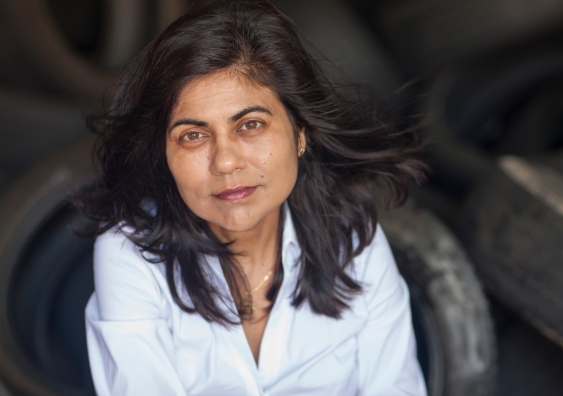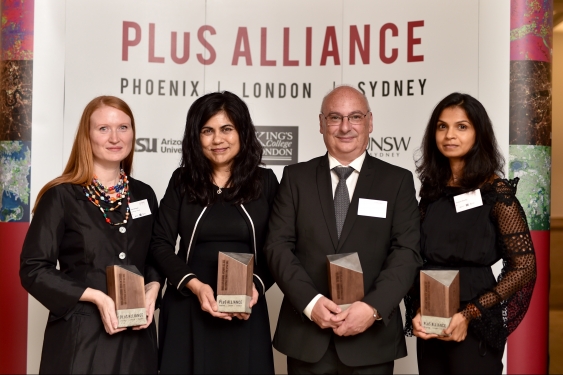“Waste warrior” wins PLuS Alliance Research Innovation prize
A revolutionary approach to the recycling of toxic waste materials has seen UNSW Scientia Professor Veena Sahajwalla awarded the inaugural PLuS Alliance Prize for Research Innovation.
A revolutionary approach to the recycling of toxic waste materials has seen UNSW Scientia Professor Veena Sahajwalla awarded the inaugural PLuS Alliance Prize for Research Innovation.

Leilah Schubert
Media Office
9385 8107 or 0410842427
l.schubert@unsw.edu.au
A revolutionary approach to the recycling of toxic waste materials has seen UNSW Scientia Professor Veena Sahajwalla awarded the inaugural PLuS Alliance Prize for Research Innovation.
The award, one of four $25,000 prizes presented at the Times Higher Education World Academic Summit in London, recognises outstanding innovation contributions that address global challenges facing society.
Professor Sahajwalla and her team at the UNSW Centre for Sustainable Materials Research and Technology (SMaRT) have developed technologies to convert complex waste materials, such as old tyres and disused electronic devices, into ‘green’ materials for use in industry.

PLuS Alliance prize winners. From left: Dr Laura Hosman, Professor Veena Sahajwalla, Professor Francisco Mojica, Ms Akshata Murthy, on behalf of her father, Mr Narayana Murthy. Photo: David Tett
“The work we’ve been doing to help global industries use green materials over virgin raw materials is vital to sustainability,” Professor Sahajwalla said.
“This recognition from the PLuS Alliance for the work we’ve been doing to drive change and impact communities across the world is a real honour.”
The PLuS Alliance is a unique international collaboration between Arizona State University, King’s College London, and UNSW Sydney. Launched in February 2016, the PLuS Alliance enables research-led solutions to global challenges while expanding access to world-class learning.
The prize for Education Innovation was awarded to Arizona State University Assistant Professor Laura Hosman for her work with SolarSPELL, a portable, solar powered digital library that helps remove barriers to learning for people in remote areas.
UNSW President and Vice-Chancellor Professor Ian Jacobs said: “The inaugural PLuS Alliance Prize did not disappoint. The calibre of candidates was impressive but, ultimately, honours went to SolarSPELL and the new science of green manufacturing”.
Two additional awards recognised global excellence. Narayana Murthy, an Indian IT industrialist and co-founder of Infosys, received the PLuS Alliance Prize for Global Leadership, and CRISPR researcher Francisco Mojica won the PLuS Alliance Prize for Global Innovation.
The World Academic Summit, held from 3-5 September, supported by UNSW, coincides with the Future of Global Higher Education symposium on 7 September, a major international meeting that brings together university and policy experts from the UK, Europe, Asia and the USA to discuss the biggest global higher education issues of our times.
The symposium will explore topics such as the continuing benefits of research and institutional collaboration; the rise and rise of online platforms such as MOOCS; and the strengthened focuses in national systems on social inequality.
To coincide with the London meetings, UNSW also launched the UK phase of its $A900 million Scientia Fellowship Program, which aims to recruit the world’s best research talent to Australia. The fellowships target a variety of academic career stages spanning research, teaching and leadership, and offer unparalleled flexibility and support.